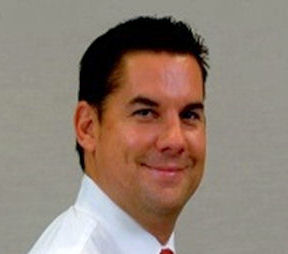It is fairly typical for financial advisors to be nice people with warm smiles and engaging personalities. It is also not uncommon for them to appear financially successful by living in upscale communities and driving luxury cars.
 But does it qualify them to give you prudent financial advice and manage your investments? What are their credentials? How much experience do they have? Do they have any past regulatory issues?
But does it qualify them to give you prudent financial advice and manage your investments? What are their credentials? How much experience do they have? Do they have any past regulatory issues?
A common mistake made by investors is to assume someone must be adequately qualified to work in the financial services field. A dirty little secret in this industry is nearly anyone can call themselves a “financial advisor.”
The truth is, financial advisors likely have dramatically different levels of experience, expertise, licenses, accreditations and ways they are compensated. Understanding these distinctions will make it easier to find a firm or individual you can trust.
When you make the important decision to work with a financial advisor, entrusting a lifetime of savings and hard work to them, it is crucial to make sure you do your homework first.
Online Resources
Company websites and resources such as LinkedIn are great places to learn about the background, education and experience of a financial advisor. While you may begin your research here, it is also important to gather some feedback from unbiased, third-party websites. Don’t expect a company website to disclose past regulatory issues and customer complains.
FINRA BrokerCheck is a free tool to help investors research the professional backgrounds of current and former FINRA-registered brokerage firms and brokers, as well as investment adviser firms and representatives. It includes current licensing status and history, employment history and any reported regulatory issues, customer disputes, criminal history and other matters.
According to SEC Commissioner Dan Gallagher, 20 percent of the more than 600,000 actively licensed, registered representatives in FINRA’s BrokerCheck database have one to five disclosures for items such as customer complaints, regulatory violations, terminations, bankruptcy, judgments and liens.
Another great place to gather information is through the BrightScope website. It is likely a bit easier to understand and search than the FINRA site, albeit less comprehensive in nature.
Registered Investment Advisors are required to file a Form ADV with the Securities & Exchange Commission. The Form ADV Part 2 will contain information such as the types of advisory services offered, the advisor’s fee schedule, disciplinary information, conflicts of interest, the educational and business background of management and key advisory personnel of the RIA.
You can search for a firm’s ADV on the SEC website. A word of warning, if you are searching a very large RIA firm with thousands of advisors, this site may be confusing and overwhelming. For a smaller, local RIA firm it should be a rather straightforward and transparent source of information.
Professional Certifications & Memberships
If an advisor has a professional designation or is a member of an organization, they may be subject to additional standards of conduct.
As a Certified Financial Planner™, I am bound by the Professional Standards of Conduct and Code of Ethics set forth by the CFP® Board. Not adhering to these standards may result in the loss of my CFP® designation.
I am also a member of the Financial Planning Association® (FPA®), the largest membership organization for CFP® professionals in the country. As an FPA member, I must adhere to the highest standards of professional competence, ethical conduct and clear, complete disclosure to those I serve.
The National Association of Personal Financial Advisors (NAPFA) was founded in 1983 and is the country’s largest professional organization of fee-only advisors. The 2,400 members must sign a Fiduciary Oath and subscribe to a Code of Ethics.
Choosing a financial advisor with these types of credentials certainly does not guarantee success, but it does add a layer of protection in some respects. Advisors with regulatory issues, lawsuits, customer complains, etc. are not likely to maintain these certifications.
For example, since 2002 the CFP Board has permanently revoked 47 CFP® designations and has suspended another 120 CFP® Professionals for a five-year period. These were from violations of the Professional Standards of Conduct or the Code of Ethics.
The financial services industry has many highly qualified, experienced and ethical financial advisors doing great work for their clients every day. As with any industry, there are also some bad apples with unethical intentions. With the above tools at your disposal, it should be a bit easier to distinguish between the two and make informed decisions with your money.
Brad Keene is a Wealth Management Advisor, Portfolio Manager at Visionary Wealth Advisors. He is a CERTIFIED FINANCIAL PLANNER (TM), holds an MBA from St. Louis University and a B.S. in Finance from Eastern Illinois University. He has been advising clients since 1996 and is a lifelong Collinsville resident. Contact Brad at brad.keene@vwa-llc.com



